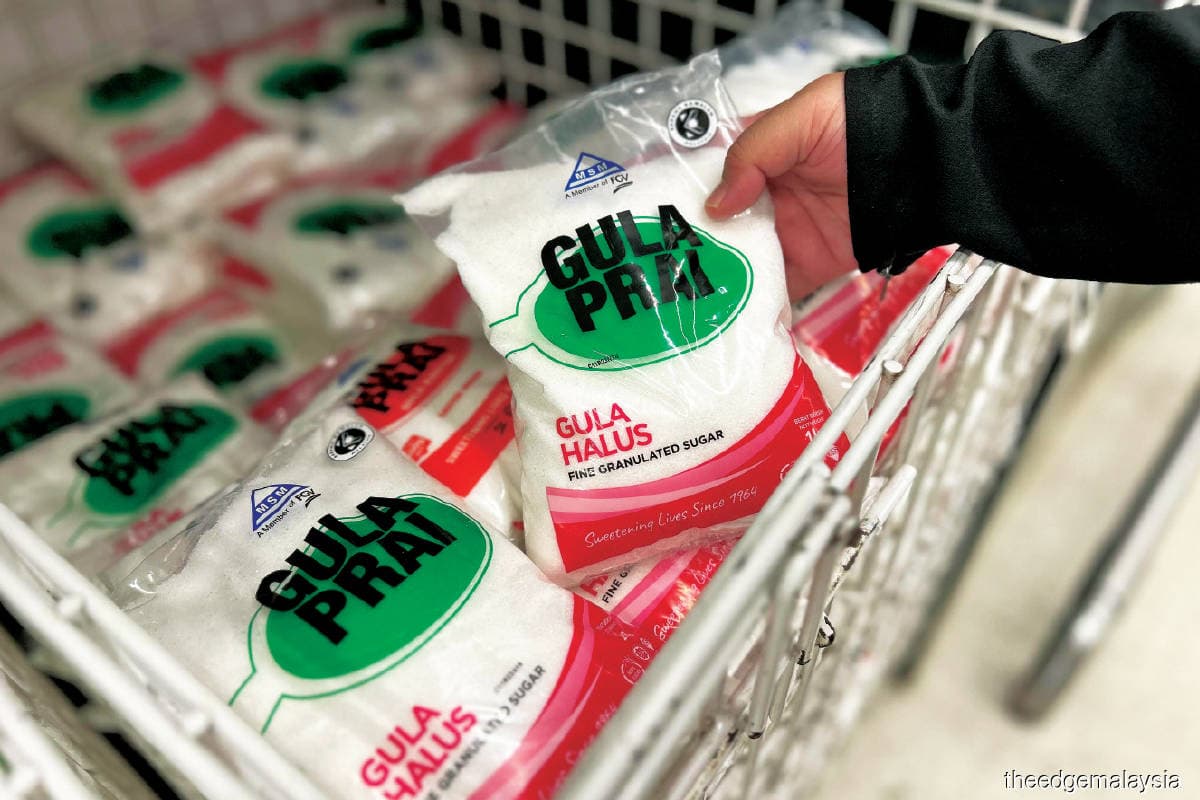
This article first appeared in The Edge Malaysia Weekly on September 4, 2023 - September 10, 2023
EXECUTIVES of Tan Sri Syed Mokhtar Albukhary’s companies are understood to have suggested a plan to swap Padiberas Nasional Bhd (Bernas) with FGV Holdings Bhd’s 51%-owned unit MSM Malaysia Holdings Bhd, say sources.
Bernas, which has the mandate and monopoly to import and distribute rice, is wholly owned by Tradewinds Group (M) Sdn Bhd (formerly Perspective Lane (M) Sdn Bhd), one of Syed Mokhtar’s flagship companies.
While there has been talk of the tycoon acquiring MSM from FGV in the past, this proposal seems to be new.
“It was mooted about a month ago. We heard about it a month ago … but we don’t have the details yet, such as how many per cent Syed Mokhtar would want for the 51% FGV has in MSM. But such a swap would have political implications, so I don’t know if it will gain traction, not to mention the monopoly with sugar refining,” says a source familiar with the goings on at MSM.
MSM is one of two large sugar refiners in Malaysia. The other is Central Sugars Refinery Sdn Bhd (CSR), which is also controlled by Syed Mokhtar through Tradewinds Group. As such, his interest in MSM could result in him gaining a monopoly of the sugar refining business.
FGV is 81.11% held by the Federal Land Development Authority (FELDA).
Nearly RM1 bil dividend from Bernas in past three years
Bernas has paid handsome dividends, to the tune of nearly RM1 billion, to Tradewinds Group over the past three years.
For its financial year ended Dec 31, 2022 (FY2022), Bernas chalked up an after tax profit of RM230.88 million on the back of RM5.52 billion in revenue. The dividend payout amounted to RM256.88 million in FY2022 against RM69.32 million in FY2021. In FY2020, a whopping RM670.02 million was dished out as dividends.
As at end-December 2022, Bernas had total assets of RM6.55 billion and RM5.14 billion in total liabilities. Its retained earnings came in at RM866.96 million during the period.
Nonetheless, Bernas’ financials may take a beating this year, following the move by India — the world’s largest exporter of rice — in July to ban the export of non-basmati white rice to help stem rising prices on its home turf while ensuring food security. Since then, more restrictions have come into force, including a 20% duty on parboiled exports.
To put things in perspective, India accounts for 40% of the world’s rice supply, and its ban on exports has removed 10 million tonnes of rice from the market. Meanwhile, other Asian rice exporters, such as Vietnam, have raised prices by about 20% since India’s ban on exports came into effect.
In view of these latest developments, Bernas on Sept 1 raised the price of imported white rice from RM2,350 per tonne to RM3,200 per tonne.
Rice farmers are currently given a monthly cash aid of RM200 under Budget 2023, for three months or one season, from the RM1.6 billion in subsidies and incentives granted to the industry, including for the price of rice and fertiliser, among others. Bernas is also slated to fork out a 30% share of its net profit from rice imports to local farmers. With these issues at play, some market watchers are speculating that the company may suffer losses in the current financial year.
MSM in the spotlight
MSM’s share price hit a 52-week high of RM1.44 on Aug 28. Since late May, the stock has gained more than 65%. It closed at RM1.39 last Friday, giving the company a market value of RM977.1 million.
Market watchers are uncertain as to why MSM’s share price has been on an upward trend. Some speculate that the government may float sugar prices while others think there could be more subsidies in the pipeline.
For the six months ended June, MSM suffered a net loss of RM56.69 million with RM1.33 billion in revenue. It has bled losses for seven straight quarters.
As at end-June, MSM had deposits with licensed banks of RM176.95 million, and cash and bank balances of RM60.27 million. Its current liabilities were pegged at RM813.59 million while its long-term debt commitments stood at RM264.04 million.
On its prospects, MSM says, “The sugar industry continues to face prolonged high input costs owing to rising raw sugar cost, high freight and natural gas costs as well as the volatility of the ringgit. Despite stronger demand seen in the local and export markets, the high input costs continue to impede the improvement of the group’s financial performance. The group remains focused on improving average selling prices and minimising costs.
“As a first step, the government has approved to float the price of premium sugar, which is differentiated by the quality of the sugar. However, the joint sugar industry still requires urgent government intervention to increase [the] sugar price or subsidy in ensuring food security and long-term sustainability of the sugar industry amid the challenges.”
Save by subscribing to us for your print and/or digital copy.
P/S: The Edge is also available on Apple's App Store and Android's Google Play.
